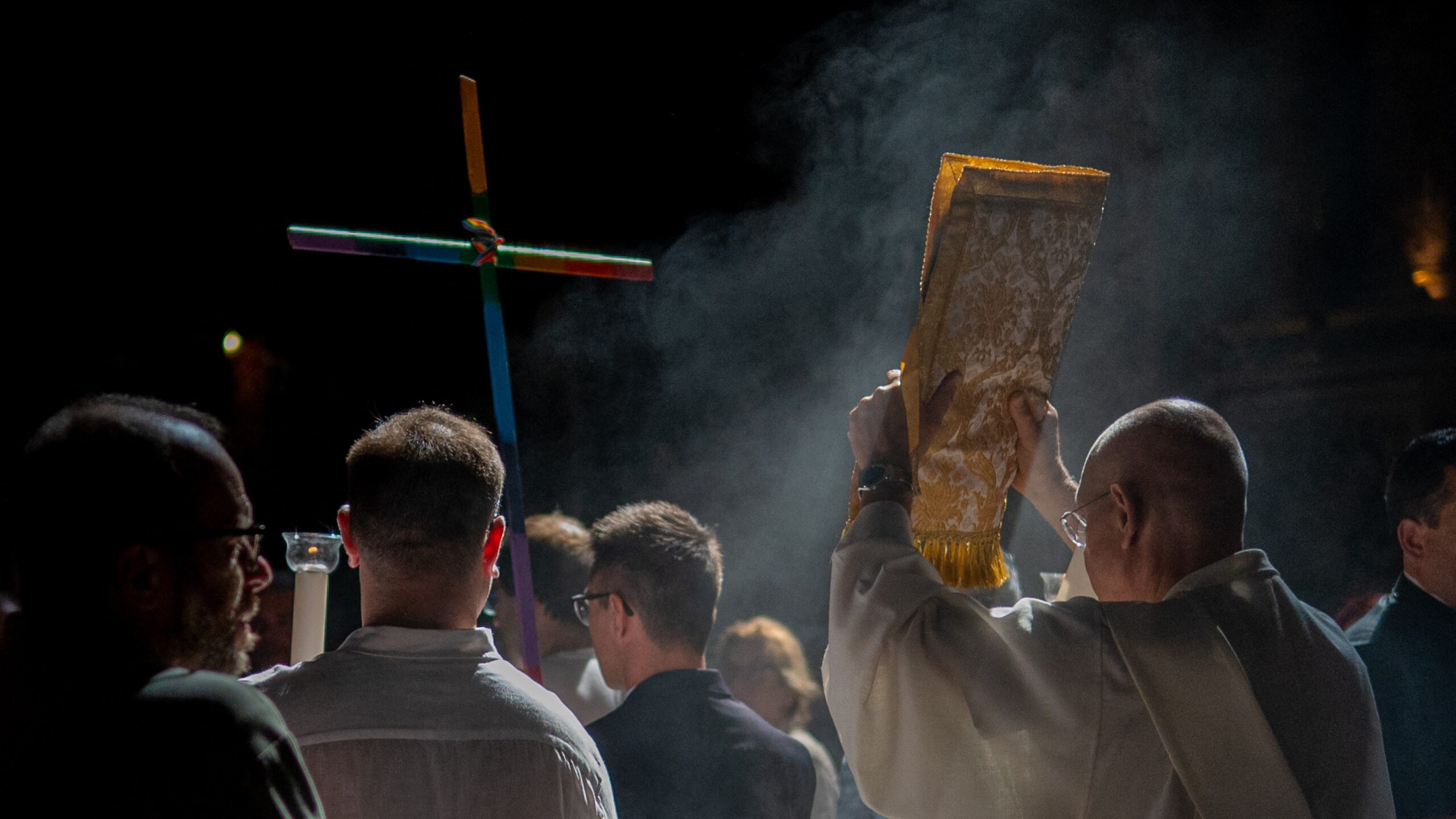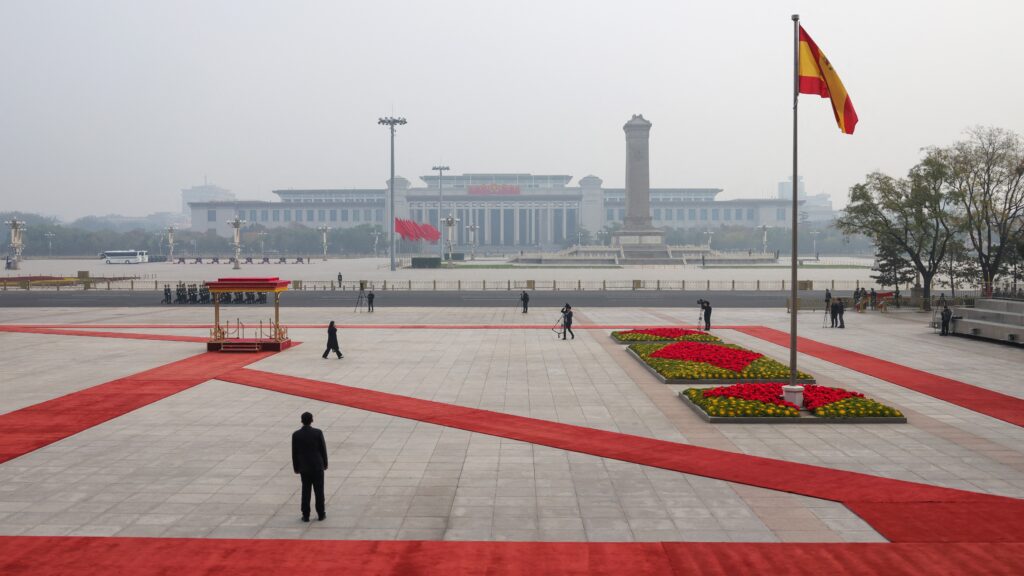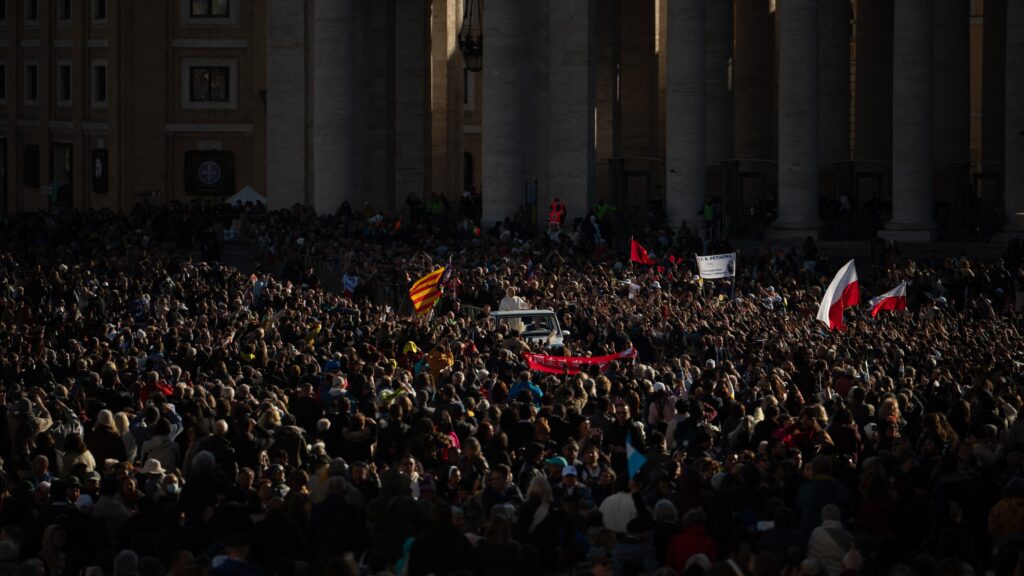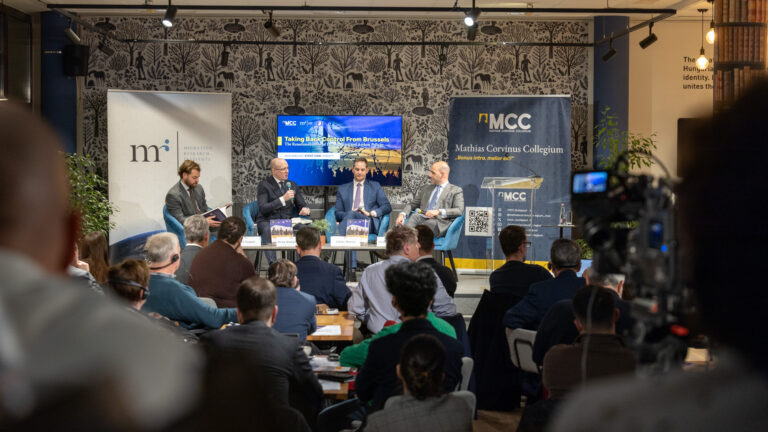Last Thursday, Pope Leo XIV issued a decree declaring the Servant of God, the Hungarian Mária Magdolna Bódi, not only among the Blessed—the step prior to being proclaimed a saint—but also as a martyr of the Church. The beatification was officially carried out on Saturday, the day before the Pontiff canonized Pier Giorgio Frassati and Carlo Acutis in St. Peter’s Square.
Archbishop György Udvardy of Veszprém expressed his gratitude for the Pope’s decision in a statement.
‘This means that the Church will elevate to the altar and honour among the blessed Mária Magdolna Bódi, who worked with her purity, servant love and humility for the physical and spiritual enrichment of her fellow human beings. In one of the bloodiest periods in history, the main goal of her life was to lead souls to Christ. Henceforth, we can officially call her a martyr. It is a special gift for the Archdiocese of Veszprém that the papal recognition took place in the year of the 80th anniversary of the appointment of József Mindszenty—who initiated the process of Magdi’s beatification—as Bishop of Veszprém,’ Archbishop Udvardy said.
Unable to enter religious life, Bódi took a private vow of chastity on the Feast of Christ the King in 1942 and joined the Marian Congregation. By March 1945, the battle between Hitler’s forces and the Soviet Red Army had reached her hometown of Litér, in western Hungary. At that time, the Soviets were known for their ruthlessness and acts of sexual violence against women. On 23 March, Bódi was among a group of women attacked at the entrance of a bomb shelter by two armed Soviet soldiers. She was shot several times, and is reported to have said, before the fatal bullet struck her:
‘My Lord and my King! Take my life!’
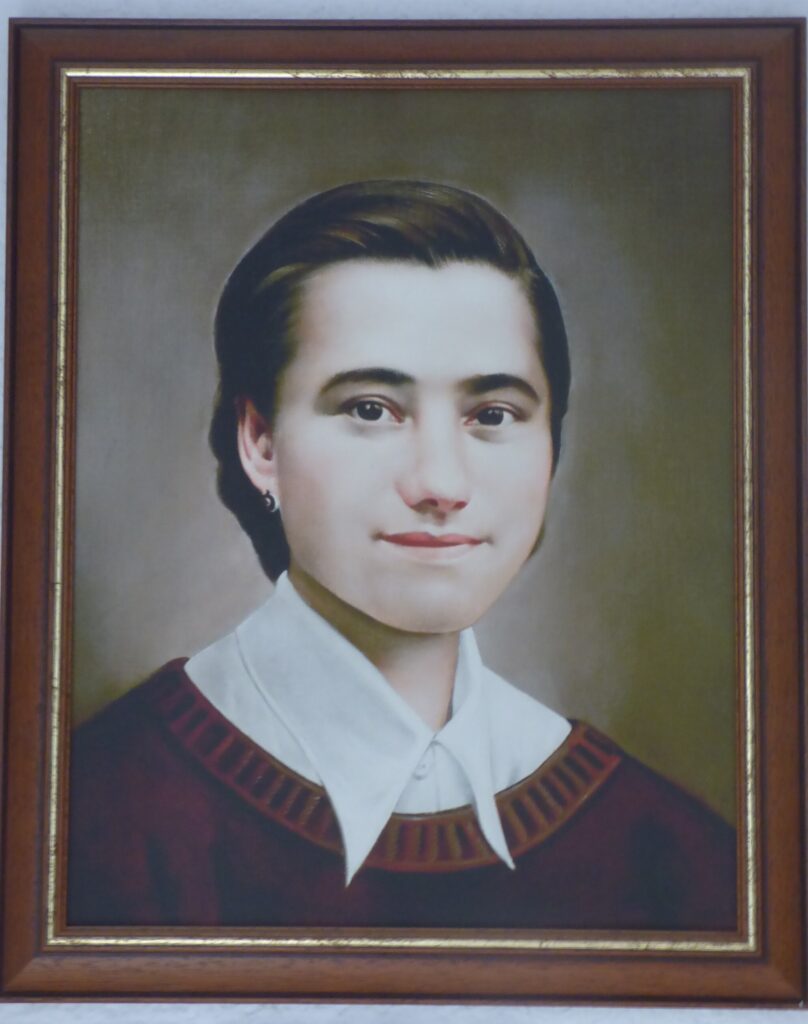
In this, Blessed Bódi followed in the footsteps of courageous young female martyrs such as Saints Agnes and Maria Goretti, who chose death rather than allow their purity to be violated—laying down their lives for the Catholic faith.
While Bódi’s beatification is intended to serve as an inspiration to all—faithful and non-faithful alike, married and unmarried, young and old—on the virtue of sexual continence, Roman authorities at the same time permitted, if not implicitly encouraged, a paradoxical—or rather, some might say, sacrilegious—event that took place in Rome over the weekend: the LGBTQ+ pilgrimage.
LGBTQ+ Pilgrimage
Organized by the pro-LGBTQ+ group Outreach, over a thousand self-identified LGBTQ+ Catholics and their families gathered to ‘celebrat[e] a new level of acceptance in the Catholic Church after long feeling shunned, and crediting Pope Francis with the change.’
Aside from entering St. Peter’s Basilica through the Holy Doors—opened for the Jubilee Year, which occurs every 25 years—the group also gathered at the Church of the Gesù, the mother church of the Jesuits, where St. Ignatius of Loyola and St. Robert Bellarmine are buried. There, Bishop Francesco Savino, vice president of the Italian Bishops’ Conference, celebrated Mass for them. About 30 priests concelebrated, including American Jesuit Father James Martin, S.J., founder of Outreach, who had met with Pope Leo XIV at the Vatican on 1 September. The Pope had also quietly received Sr. Lucía Caram, an Argentine Dominican nun best known for her public approval of homosexual ‘marriage’ and her advocacy for abortion.
The irony was stark: rather than recalling the gravity of sins such as homosexual acts, attempts to surgically alter one’s biological sex, and other serious moral disorders—and subsequently, the need for sacramental conversion—the Mass became a spectacle of self-celebration. Rainbow flags and rainbow crosses were waved; religious brothers and sisters fanned themselves with rainbow-colored fans. The recessional concluded with applause and embraces.
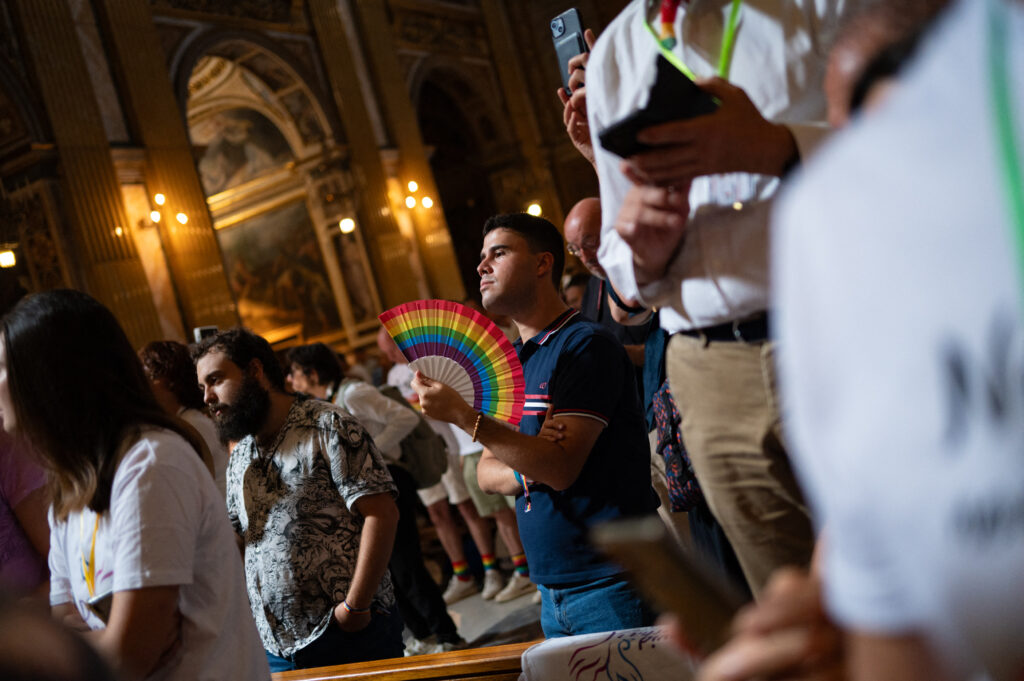
In his homily, Bishop Savino underscored the inherent dignity of every person and the need to ‘restore dignity to those who have been denied it.’
‘We are all a pilgrim people of hope, and we want to leave this celebration more joyful and hopeful than ever,’ Savino said. ‘We have to go forward, convinced that God loves us [with] a unique and unrepeatable love…an unconditional love.’
It Did Not Stop There
There was also—albeit less climactic—another ironic event in Rome over the weekend: the appointment by Pope Leo XIV of Cristiana Perrella as the new President of the Pontifical Academy of Fine Arts and Letters of the Virtuosi at the Pantheon.
Among Perrella’s curated works are exhibits that celebrate nightclub culture as the beating heart of ‘queer identity’, as well as photographs depicting naked men urinating on other men with plastic bags over their heads—images she has described as ‘poetic, elegant, and melancholic’.
‘The nude human form is the pinnacle of God’s creation, in particular the female body, with its life giving potential is and always was an essential part of western figurative art’
Contrary to a Puritan or Jansenist mentality, there is nothing inherently wrong with a painting or sculpture that depicts the naked human form. Works such as Michelangelo’s frescoes in the Sistine Chapel or the Venus de Milo not only express harmony and beauty, but, as one illustrious painter put it: ‘The nude human form is the pinnacle of God’s creation, in particular the female body, with its life giving potential is and always was an essential part of western figurative art.’
What Perrella promotes, however, borders on pornography, to say the least—amounting to a perversion of the image of the naked human body. One should perhaps not be surprised by this spirit in Rome, given that in 2019 Pope Francis blessed the controversial pagan Pachamama statue in the Vatican Gardens, as a prelude to the opening of the Amazon Synod. The idol was then carried in procession into St. Peter’s Basilica, where he and others prayed before it—something the first martyrs of the Church refused to submit to.
It is true that the doors of the Catholic Church are open to all, including those who have been treated as lepers because of their sexual disorientation—an attitude that is itself un-Christian, especially when such individuals are striving to live in continence. Nevertheless, to suggest that homosexual acts—or surgically altering one’s biological sex because, as transgender individuals claim, they were ‘born in the wrong body’—bring a person closer to God is false. Such actions do not lead to holiness any more than a man who refuses to stop cheating on his wife draws nearer to God.
And one does not need religion to understand this. Natural law itself, that is, the universal moral code inherent in human nature, makes it clear.
Given the sexual curiosity of people today, especially among the youth, there is a pressing need for the Church’s shepherds to speak with clarity on such matters. Regrettably, what we often witness is the ostrich effect at the very best—or rather, the application of the legal maxim: ‘Qui tacet consentire’, that is: ‘In their silence, they give consent.’
The views expressed by our guest authors are theirs and do not necessarily represent the views of Hungarian Conservative.
Read more by the same author:

